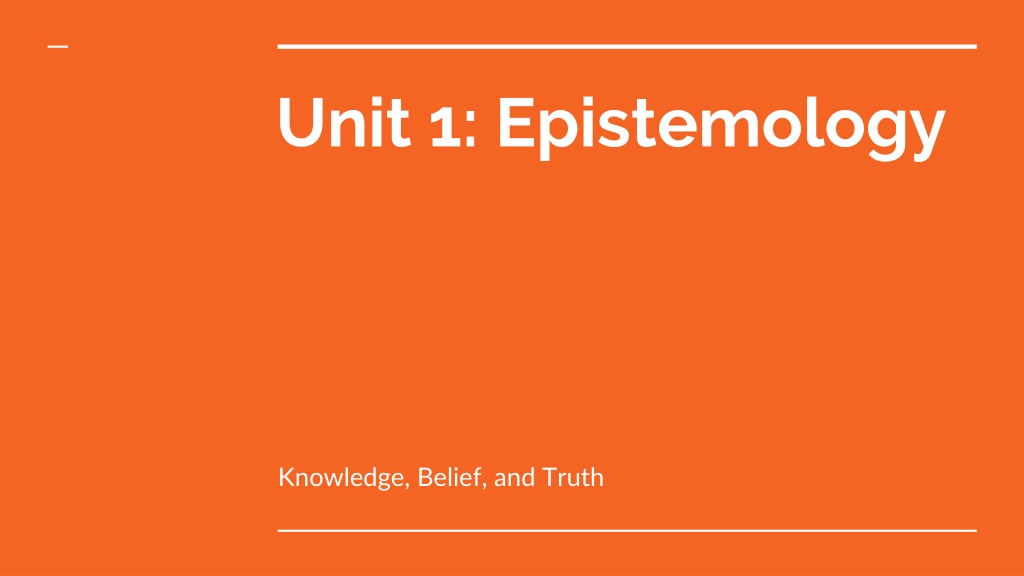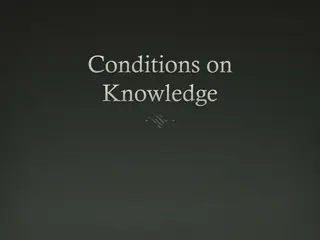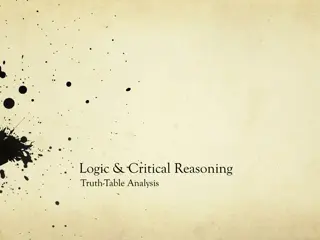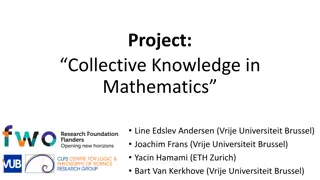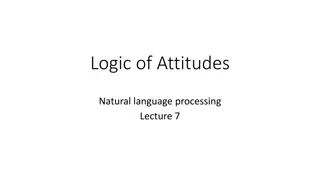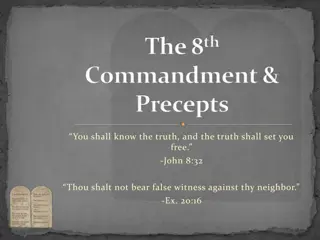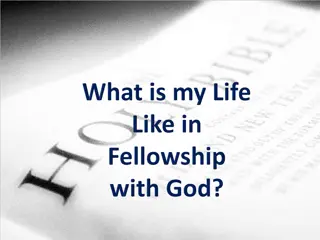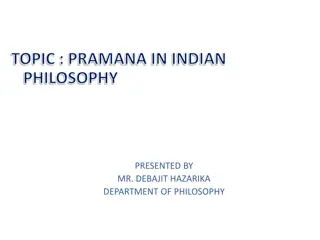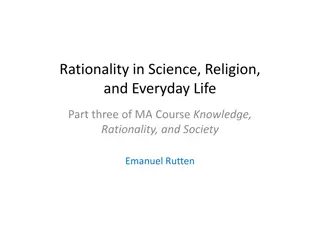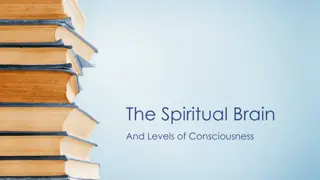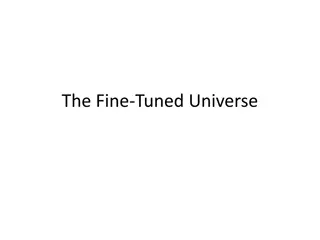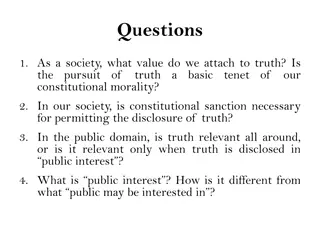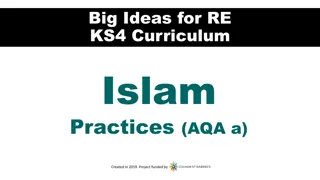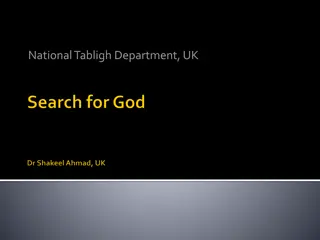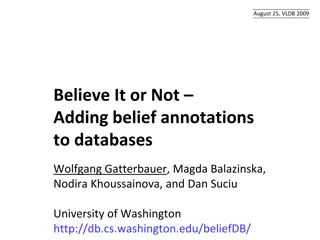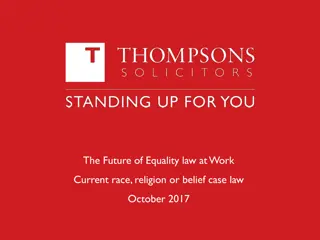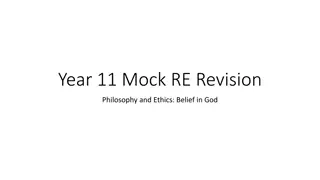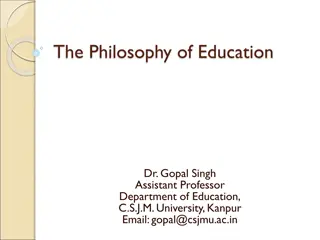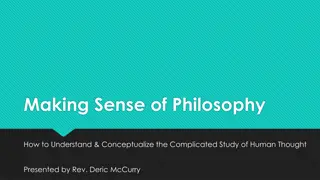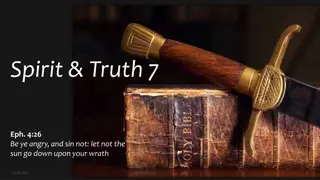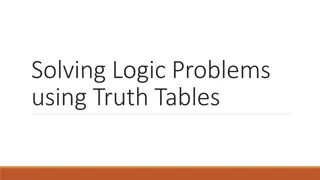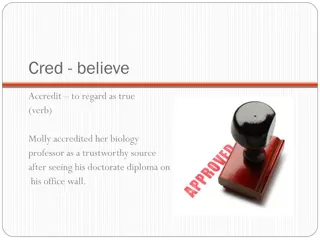Exploring Epistemology: Knowledge, Belief, and Truth
Delve into the intriguing world of epistemology through a thought-provoking story of a mouse and cheese. Questions of knowledge, belief, truth, and reasoning are examined, challenging perceptions and understanding. Discover perspectives from various characters in the narrative and ponder the distinctions between belief, knowledge, and opinion.
Download Presentation

Please find below an Image/Link to download the presentation.
The content on the website is provided AS IS for your information and personal use only. It may not be sold, licensed, or shared on other websites without obtaining consent from the author. Download presentation by click this link. If you encounter any issues during the download, it is possible that the publisher has removed the file from their server.
E N D
Presentation Transcript
Unit 1: Epistemology Knowledge, Belief, and Truth
The Mouse Who Ate The Cheese A story
1.Why was Bill so sure that he knew the mouse at the cheese? Were his reasons good ones? Explain. 2.Why did Alice never claim to know that the mouse at the cheese, even though she firmly believed it? 3.Did Alice have reasons for believing that the mouse at the cheese? Were they good ones? 4.What reasons did Virginia and Adrian have for knowing that the mouse ate the cheese? Were they adequate reasons? 5.Did Bill, Virginia, and Adrian believe that the mouse at the cheese? 6.Can we know anything without believing it? 7.Why did George never know that the mouse ate the cheese even though he had the same evidence as Virginia and Adrian? 8.Why did none of the others at the party not know that the mouse at the cheese? 9.Under what circumstances would everyone at the party have known that the mouse at the cheese?
Epistemology The study of the nature of knowledge, the rationality of belief, and justification. The investigation of what distinguishes belief from knowledge and opinion...
KNOWLEDGE 1. What can we know? 2. How can we be sure we know it? 3. Are there different types of knowledge?
Socrates (Greece, 470-399 B.C.) First of the Academic philosophers. Taught through public discussion. Questioned how we ought to live and what the good life for man might be. Continuous critical reflection/critical thought. The only thing I know is that I know nothing.
Plato PHILOSOPHY - Plato Plato was one of the world's earliest and possibly greatest philosophers. He matters because of his devotion to making humanity more fulfilled. More films on PHILOSOPHY: http://bit.ly/TSOLphilosophy If you like our films, take a look at our shop (we ship worldwide): http://www.theschooloflife.com/shop/most-popular/?utm_source=You%20Tubeutm_medium=YouTube%20video%20description%20-%20most%20popularutm_campaign=YouTube%20video%20description%20-%20most%20popular Produced in collaboration with Mad Adam http://www.madadamfilms.co.uk (Greece, 427-347 B.C.) Founder of the Academy The world of experience is illusory Theory of Forms The Republic
Platos Theory of Forms We can t see anything that is abstract, aka The Forms. Anything we experience through our senses are particular things, not the abstract. What really exists; unchanging and eternal. Example: Beauty. Many things could be beautiful, but they can t be Beauty. Beauty exists because even if beautiful things are destroyed, Beauty still exists. We can only know the Forms if we reorient ourselves away from the world of senses, the empirical world.
Plato and Knowledge: what is knowledge? Justified, true belief What is Belief? An expression of faith and/or trust in a person, power, or other entity What is Truth? If you KNOW something, it must be true. To BELIEVE something, it DOES NOT have to be true. Knowledge requires belief The belief must be true The belief must be justified by reasons/evidence
Justification and Rationality of Belief Belief: If belief is: an expression of faith and/or trust in a person, power, or other entity, then.. When is it rational to have faith and/or trust? Who/what can we believe? Justification: To justify is to explain. Do our justifications HAVE to be RATIONAL? We justify our beliefs in many ways.
Rank these, according to the continuum 1. Columbus discovered America in 1492. 2. If A is bigger than B and B is bigger than C, then A is bigger than C. 3. Human beings descended from Apes. 4. Killing is wrong. 5. Aliens have visited Earth at some time in its history. 6. All metals expand when heated. 7. Human beings have an immortal soul. 8. It is possible to construct a square with the same given area as a circle.
Justification of our Beliefs Angel Spotted While Filming for TV An out-take from recent filming for Talent Search. TV Presenter David Grant is claiming to have seen an "Angel" hovering over the river Thames in London. Based on this video...do you believe angels exist?
A Priori - When you can t offer any more support for your argument - That s where you stop.
Common A Priori Authority Parents Teachers Media Friends Common Sense Logic (aka Reason) Self Memory Sense Perception Intuition
